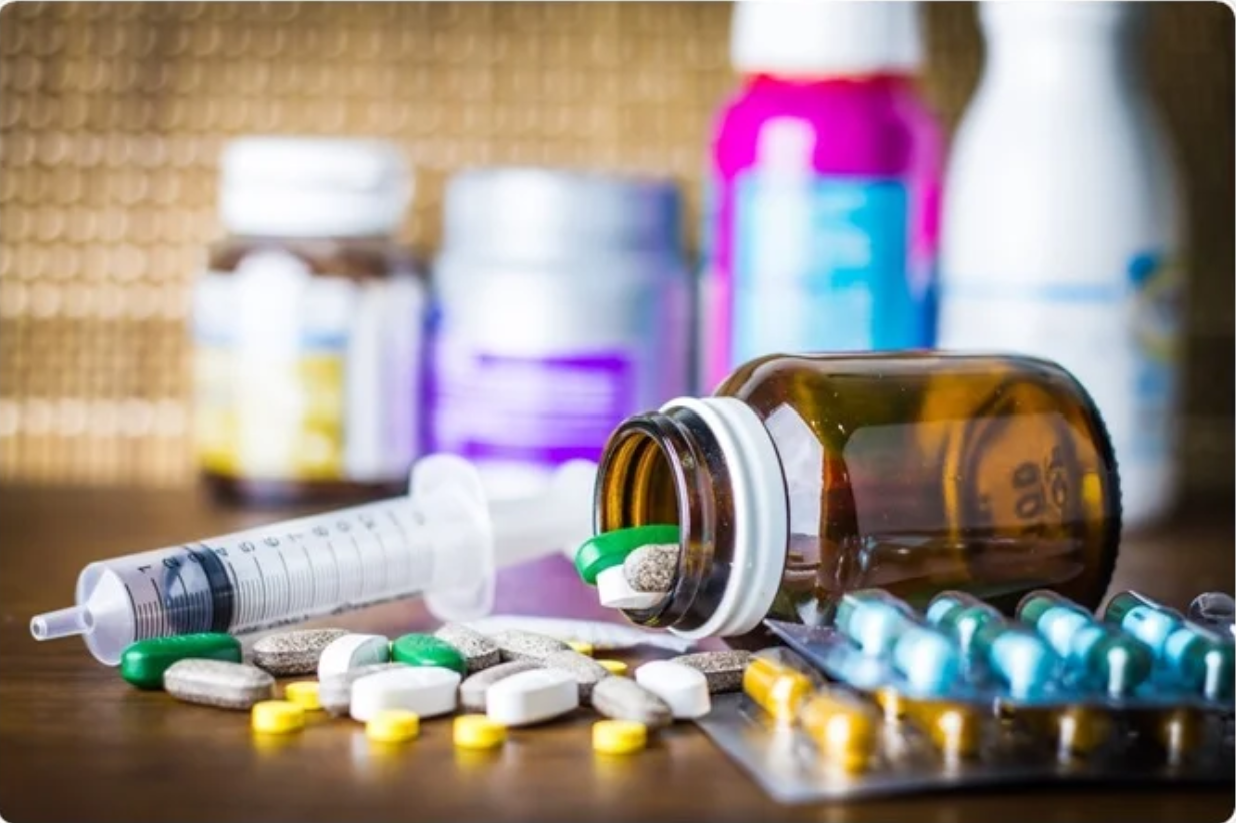The young man’s complexion was dull–a gaunt face that housed bulging red eyes with dark, cracked lips betraying severe dehydration.
These characteristics are not merely incidental; they are traits of a pulmonary infection—he has spent many agonizing months in the hospital, battling dysfunctional lungs and kidneys.
Samuel Akor (not his real name), 30, attributes all of this to his past indulgence in drugs. He recalled a time when he consumed all manner of substances, sometimes substituting them for meals.
“Coming from a wealthy family, I never ran out of cash to buy whatever substances I was addicted to. With friends who shared my lifestyle, the freedom of university, and plenty of money, there wasn’t a drug I wouldn’t try,” he said amid sobs.
He reflected on his former acquaintances, still heavy in addiction, wishing he could reach out to them and implore them to break free from the destructive cycle.
“Drug abuse is something I still can’t comprehend. You start with no intention of becoming addicted, but then you find yourself trapped,” he stated.
Akor recounted his descent into drugs, which began in his school days, where he was looped into a chain of drug dealers. Before long, he had his own supply racket, supplying his fellow students.
Even after leaving school, drugs continued to hold sway over Akor’s life despite admonitions from his friends and family. It wasn’t until his health began to decline that he finally grasped the severity of his choices.
“Indulging excessively in marijuana, distilled spirits, pills, cigarettes, and more is bound to catch up with you. Unfortunately, my consequences arrived sooner than expected. It’s a hard lesson, and I hope others realise before it’s too late,” he lamented.
Salman Abdul’s story unfolds differently. Unlike Akor, he managed to preserve his internal organs intact, as he confirmed during a recent hospital check-up.
The 32-year-old was once part of a notorious gang that wreaked havoc in neighbourhoods within Kano State, sniffing drugs and engaging in various petty crimes, often under the cloak of darkness, crises that persist in the state till date.
“My wake-up call came when some of the gang members committed a heinous crime against a young girl and falsely accused me. I spent days behind bars until the real culprits were apprehended,” Abdul recounted.
Haunted by his parents’ relentless efforts to secure his release despite his wrongdoings, Abdul underwent a profound transformation. He renounced drugs, gangs, and criminal activities, embracing a new life of integrity and purpose.
While Akor and Abdul have since abandoned drug abuse for vastly different reasons, the scars of their past decisions remain. Sadly, stories like theirs are far too common, with drug abuse and trafficking continuing to ensnare countless youths and teenagers.
A festering cancer
According to the National Drug Law Enforcement Agency (NDLEA), approximately 14.3 million Nigerians, aged 15 to 64, were involved in drug abuse as of 2023. This statistic highlights a pervasive issue affecting individuals from all walks of life, with an increasing number of women also falling prey to addiction.
An estimated 9,444 drug suspects were arrested across Nigeria in 2019, with 8,357 male suspects (90.37%) and 909 female suspects (9.63%). This was a slight decrease from 2018, when 9,831 suspects were arrested, comprising 9,129 males and 702 females.
The International Day Against Drug Abuse and Illicit Trafficking, observed annually on June 26th, serves as a poignant reminder of the global efforts needed to combat this pressing issue. Established by the United Nations General Assembly in 1987, this day aims to strengthen action and cooperation to achieve a society free of drug abuse.
Challenges and Hope
Each year, the United Nations Office on Drugs and Crime (UNODC) selects a theme to underscore specific aspects of the global drug issue, focusing on health, justice, prevention, and reducing the stigma associated with drug addiction. Through educational programs, social media outreach, and community events, stakeholders work together to educate the public, particularly youth, about the risks of drug abuse and the importance of maintaining healthy, drug-free lifestyles.
The stories of individuals like Akor and Abdul serve as potent reminders of the profound impact of drug abuse. Their journeys from darkness to redemption underscore the need for continued vigilance and support for those struggling with addiction. As we commemorate the International Day Against Drug Abuse and Illicit Trafficking, let us reaffirm our collective commitment to combatting drug abuse in all its forms, fostering healthier communities, and offering hope to those in need of aid.
Samuel Akor, a 30-year-old man, suffers severe health issues, including pulmonary and kidney infections, due to his past drug abuse. Coming from a wealthy family, Akor was heavily into drugs during and after university, leading to serious health consequences. Despite warnings, his health deterioration was a wake-up call, lamenting the harsh repercussions of his lifestyle choices.
In contrast, Salman Abdul, a 32-year-old former gang member, managed to keep his organs intact. Abdul's turning point came after being falsely accused of a crime committed by his gang. This experience, coupled with his parents' efforts to release him from jail, led him to renounce drugs and criminal activities.
Akor's and Abdul's stories highlight the pervasive issue of drug abuse in Nigeria. The National Drug Law Enforcement Agency (NDLEA) reported about 14.3 million Nigerians aged 15 to 64 were involved in drug abuse in 2023. In 2019, 9,444 drug suspects were arrested, showing a slight decrease from 2018. The International Day Against Drug Abuse and Illicit Trafficking on June 26 emphasizes global efforts to combat this issue.
The United Nations Office on Drugs and Crime (UNODC) annually selects themes to address various aspects of drug issues, aiming to educate the public, especially youth, about the risks of drug abuse. Stories like those of Akor and Abdul serve as reminders of the severe impact of drug abuse and the importance of support and vigilance in combating this challenge.






